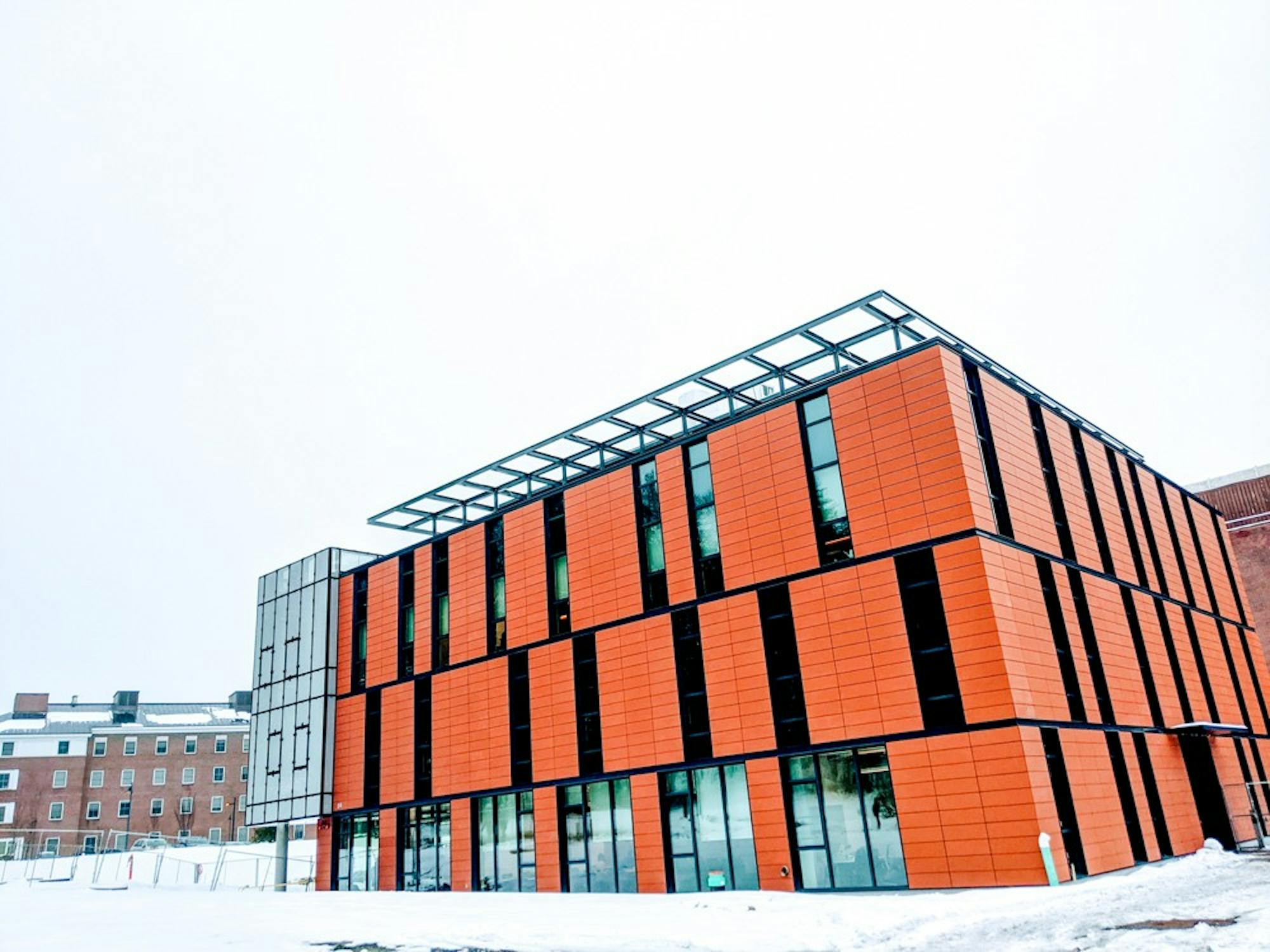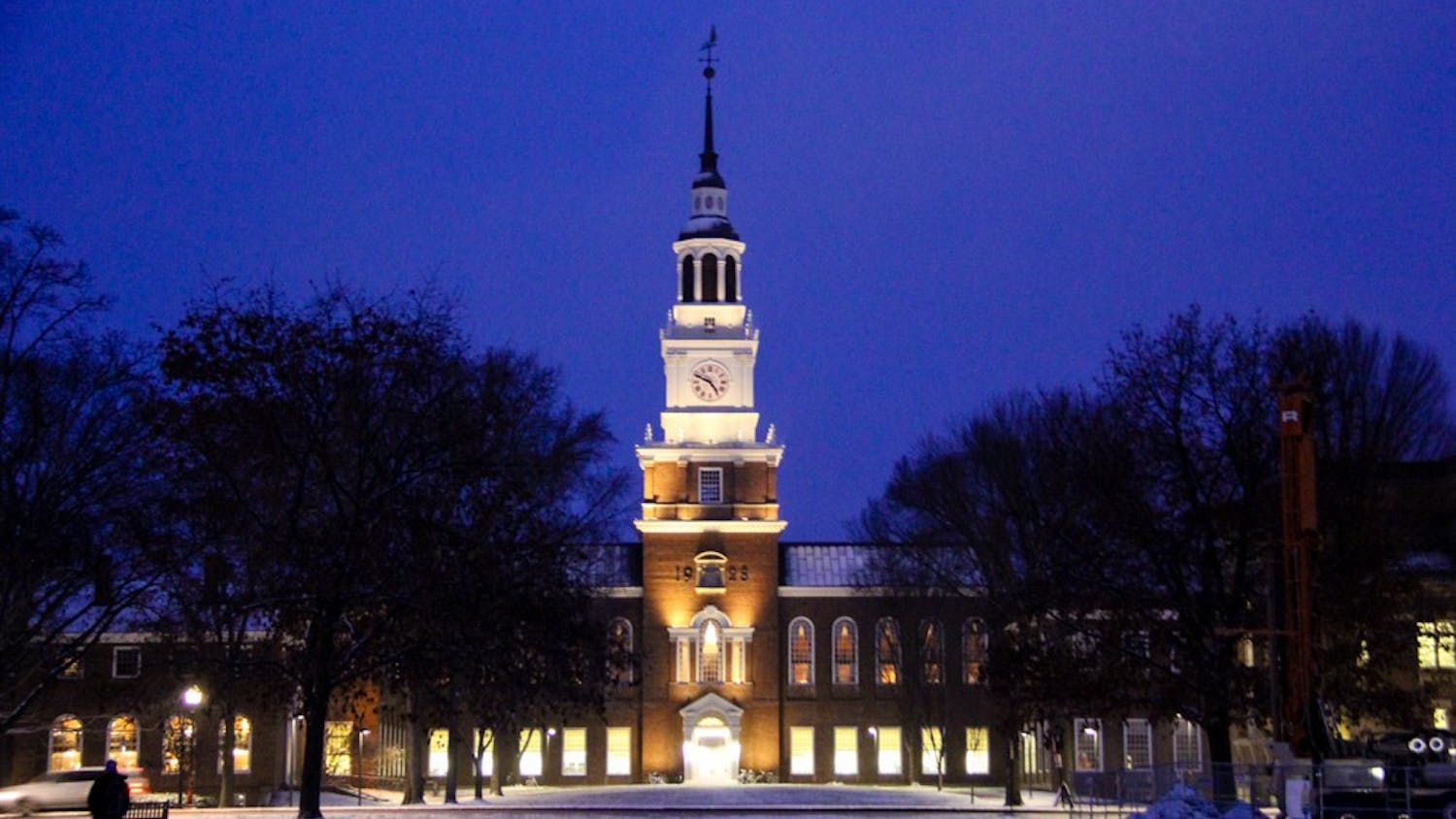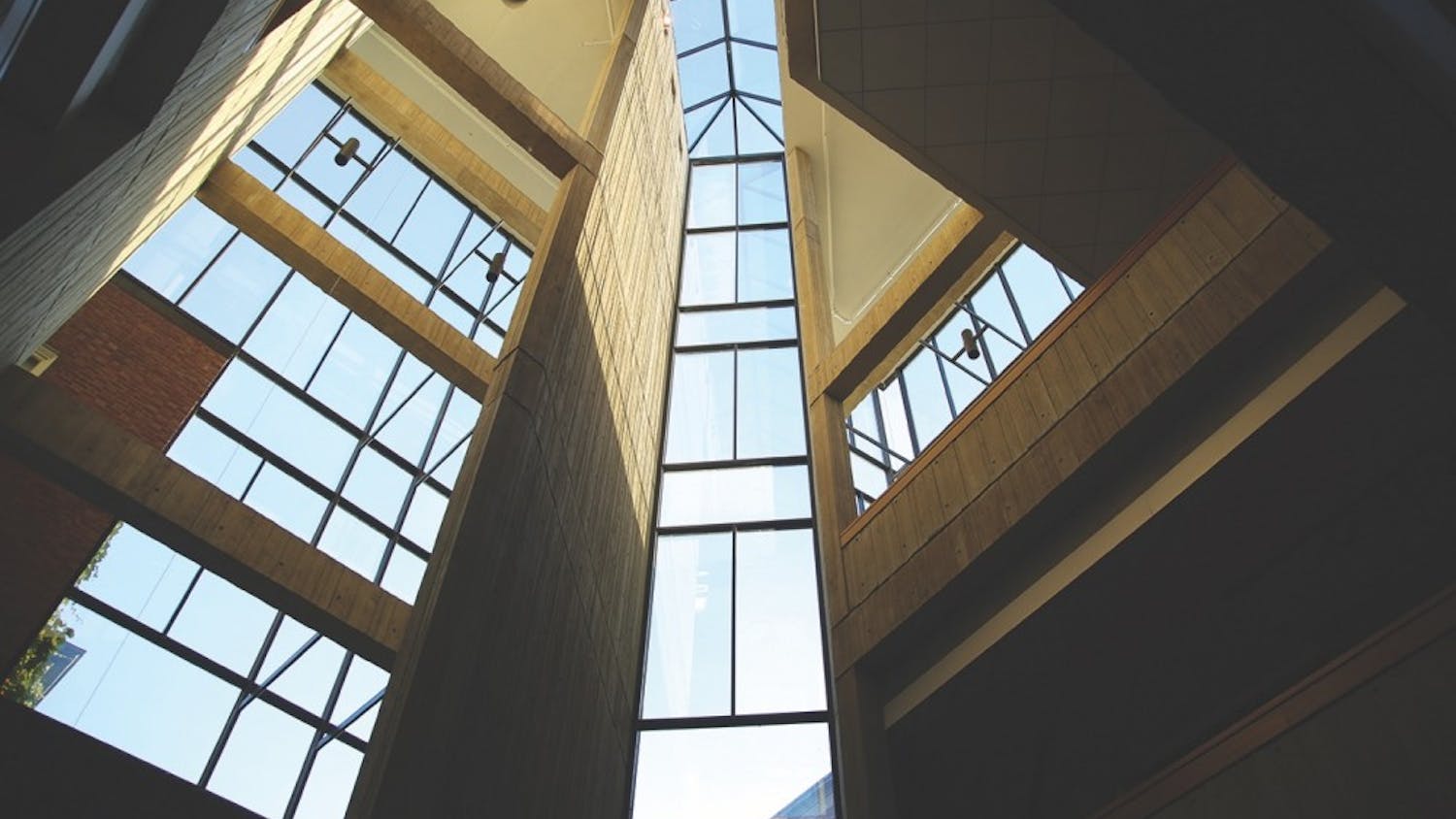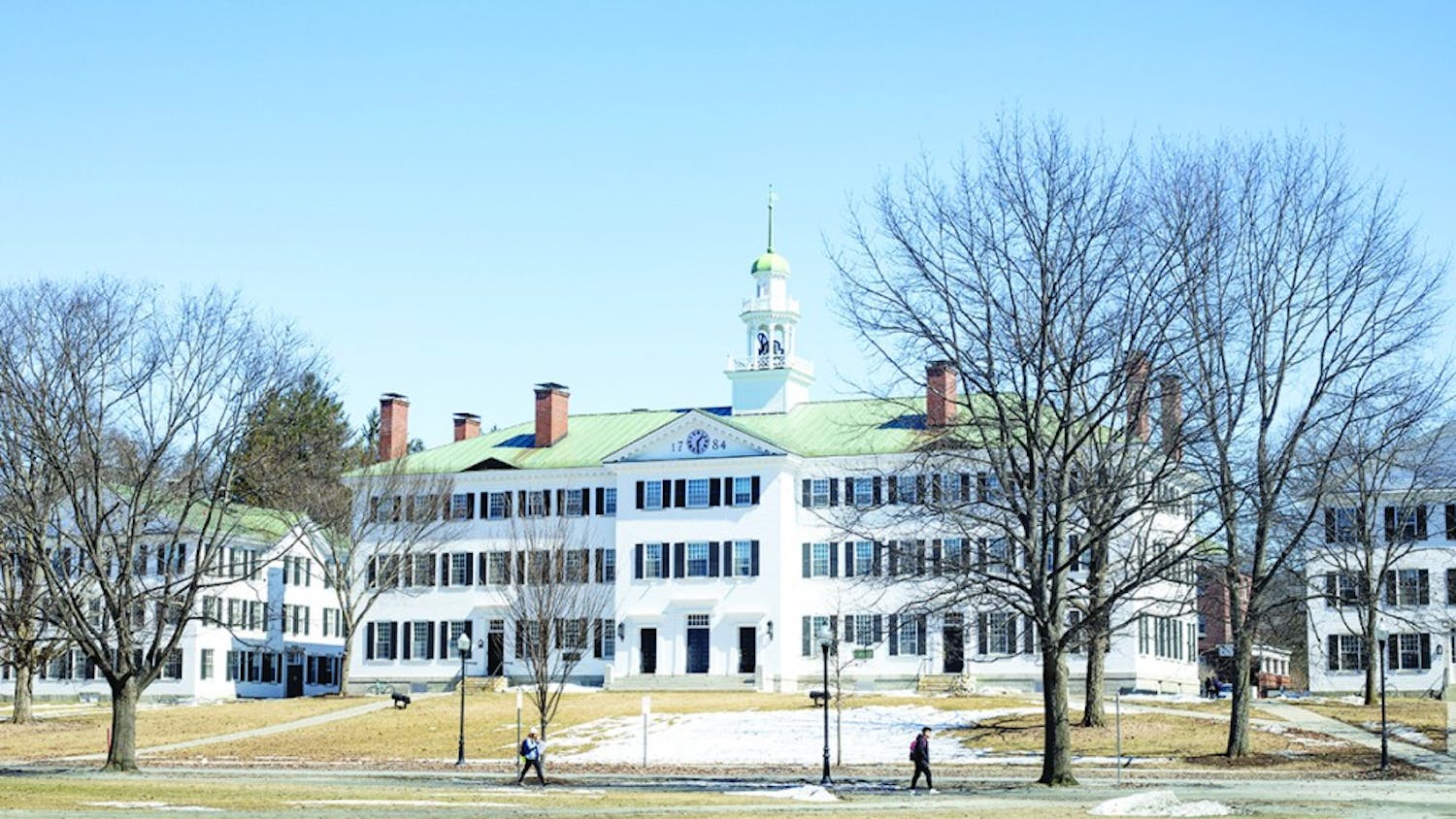Funded primarily by the College’s ongoing “The Call to Lead” capital campaign, the newly renovated Anonymous Hall’s construction prioritizes sustainability and alumni recognition. The name of the building — originally Dana Biomedical Library — is intended to acknowledge the contributions of Dartmouth alumni and comes at the request of the anonymous lead donor for the project, who declined publicity.
“We won’t be successful without widespread participation of alumni at every level: from young entrepreneurs committing a portion of their future earnings, to scores of women contributing to the renovation of Dartmouth Hall, to young alumni driving participation rates in the Dartmouth College Fund,” wrote Board of Trustees chair Laurel Richie ’81 in an email statement. “That we’ve been as successful as we have been to date is a testament to alumni commitment and passion for the place ... This gift, to reimagine and renovate Anonymous Hall, reflects the extraordinary generosity of one alum recognizing the generosity of all alums.”
Originally built during the 1970s, Dana Biomedical Library was stripped down to its frame and foundation before being renovated. The renovated building was designed by architects at Leers Weinzapfel Associates.
“The College wanted to look at how efficiently they could reuse something, which is a sustainable thing and somewhat of a new thing for them,” said Leers Weinzapfel Associates principal architect Josiah Stevenson ’80. “I think before [the College] tended to want to demolish and rebuild.”
According to Stevenson, sustainability was a primary consideration in much of the design and construction of Anonymous Hall. The Projected Energy Use Index of Anonymous Hall — measured by the total projected energy use in one year divided by the area of the building — is currently 25 kilo British thermal units by square foot by year, but will be reduced to 9 kBtu/sf/y once the solar panels are installed, Stevenson said.
“The average Dartmouth [pEUI] is well over a 100,” Stevenson said. “So this is almost a net-zero building. It’s really the almost net-zero that’s an accomplishment.”
Stevenson said that in addition to the solar panels, the material and glass used for the exterior of the building all increase the energy efficiency of the building.
Anonymous Hall currently meets the requirements for LEED Silver Certification, a rating from the U.S. Green Building Council that recognizes sustainable building strategies. Upon the building’s completion, Stevenson said that the College hopes to eventually attain LEED Gold Certification.
In addition to sustainability, Stevenson explained that the architects needed to reconcile the traditional design of the campus with designing a modern building.
“Most progressive colleges want to do buildings of the time,” Stevenson said. “I think that’s appropriate to have a campus of different periods of buildings. The challenge is to make it fit in with scale and material.”
Stevenson said that in addition to the modern design, the terra cotta exterior of Anonymous Hall was chosen to match the traditional color scheme of other buildings on campus.
Anonymous Hall currently houses Ramekin Cafe; the Guarini School of Graduate and Advanced Studies; and the linguistics, Russian and part of the computer science departments. Once completed, the top floor will house a rooftop garden with a view of Baker Tower.
“We’ve been in 37 Dewey Field, and it’s kind of out of the way,” said graduate and advanced studies dean Jon Kull ’88. “Being here, we just feel like we’re a lot more central and on-campus. It’s a lot easier for graduate students.”
Kull said that because many graduate students study in nearby buildings such as the Life Sciences Center, Anonymous Hall “is much more conveniently located.” He also highlighted the new Guarini common space located on the garden level of Anonymous Hall, adding that it provides graduate students with a place to study and socialize.
“We just feel like we’re a lot more part of the campus, which is great because in a lot of ways, graduate students have kind of been invisible on campus,” Kull said. “This gives us a much better visible presence.”
The construction of Anonymous Hall received funding from The Call to Lead, a $3 billion campaign that has funded campus projects such as the expansion of the Hood Museum of Art.
“One of the overarching goals of The Call to Lead is to invest heavily in Dartmouth’s distinctive educational model as a fusion of a renowned liberal arts college and a robust research university,” Richie wrote. “Anonymous Hall exemplifies that fusion as it creates new classroom space for undergraduate teaching in close proximity to the Guarini School of Graduate and Advanced Studies. It embodies the uncommon access our students have to faculty and the intergenerational community bonds that form at Dartmouth among our undergraduates, graduate students and faculty.”
Richie wrote that The Call to Lead has currently raised $2.2 billion and is on track to close the campaign by 2022. Other construction projects funded by The Call to Lead include an indoor athletic practice facility to open this spring and buildings for the engineering and computer science departments as well as the Arthur L. Irving Institute for Energy and Society, both of which are scheduled to open in fall 2021.
The formal dedication for Anonymous Hall will tentatively take place on May 15 during the 220th session of the Alumni Council.




